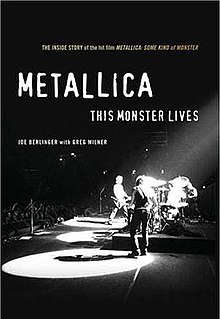Related Research Articles
Alien primarily refers to:
Terminator may refer to:
A soundtrack, also written sound track, can be recorded music accompanying and synchronized to the images of a motion picture, book, television program, or video game; a commercially released soundtrack album of music as featured in the soundtrack of a film, video, or television presentation; or the physical area of a film that contains the synchronized recorded sound.
Action may refer to:

Dont Look Back is a 1967 American documentary film by D. A. Pennebaker that covers Bob Dylan's 1965 concert tour in England.
Line, lines, or LINE may refer to:

Born on the Fourth of July, published in 1976, is the best-selling autobiography by Ron Kovic, a paralyzed Vietnam War veteran who became an anti-war activist. Kovic was born on July 4, 1946, and his book's ironic title echoed a famous line from George M. Cohan's patriotic 1904 song, "The Yankee Doodle Boy". The book was adapted into a 1989 Academy Award winning film of the same name co-written by Oliver Stone and Ron Kovic, starring Tom Cruise as Kovic.
Doomsday may refer to:
45 (forty-five) is the natural number following 44 and followed by 46.
Touch is one of the sensations processed by the somatosensory system.
New York most commonly refers to:
Spider-Man is a Marvel Comics superhero.

Metallica: This Monster Lives is a book written by Joe Berlinger and Greg Milner about how Berlinger filmed the feature-length movie Metallica: Some Kind of Monster with the legendary heavy metal band Metallica. The book follows the emotional roller-coaster both he and his film partner Bruce Sinofsky and the band Metallica went through during the creation film. The book takes in the time from Berlinger and Sinofsky's first meeting with Metallica in 1999 to the 2003 Summer Sanitarium Tour. Berlinger and Sinofsky's relationship was at an all time low, exacerbated by Berlinger's decision to direct the disastrous sequel to the Blair Witch. At the start of filming the relationship between the band members, especially between vocalist James Hetfield and drummer Lars Ulrich, is in a similarly perilous position after bassist Jason Newsted quit the band and long standing grudges between the remaining members threaten to escalate past the point of no return.
"The Sound of Music" is the title song from the 1959 musical The Sound of Music. It was composed by Richard Rodgers with lyrics written by Oscar Hammerstein II. The song introduces the character of Maria, a young novice in an Austrian abbey.

"The Seeker" is a song written and recorded by American country music artist Dolly Parton, which served as one of the title songs to Parton's 1975 album Dolly: The Seeker/We Used To, and was also a top ten single on the U.S. country charts. A spiritual, which Parton described as her "talk with God", the song was released as a single in July 1975, just missing the top spot on the U.S. country singles chart; it peaked at #2.
"The Book of Love" is a rock and roll / doo-wop song, originally by The Monotones. It was written by three members of the group, Warren Davis, George Malone and Charles Patrick.
"I Dreamt I Dwelt in Marble Halls", or "The Gipsy Girl's Dream", is a popular aria from The Bohemian Girl, an 1843 opera by Michael William Balfe, with lyrics by Alfred Bunn. It is sung in the opera by the character Arline, who is in love with Thaddeus, a Polish nobleman and political exile.

Veni, vidi, vici is a Latin phrase popularly attributed to Julius Caesar who, according to Appian, used the phrase in a letter to the Roman Senate around 47 BC after he had achieved a quick victory in his short war against Pharnaces II of Pontus at the Battle of Zela. The phrase is used to refer to a swift, conclusive victory.
The "king of the world" may refer to:
"Swingin' the Alphabet" is a novelty song sung by The Three Stooges in their 1938 short film, Violent Is the Word for Curly. It is the only full-length song performed by the trio in their short films, and the only time they mimed to their own pre-recorded soundtrack. It contains a censor-baiting line; when the singers start ringing the changes on the letter “F” it seems as though an obscene word will result, but it does not.